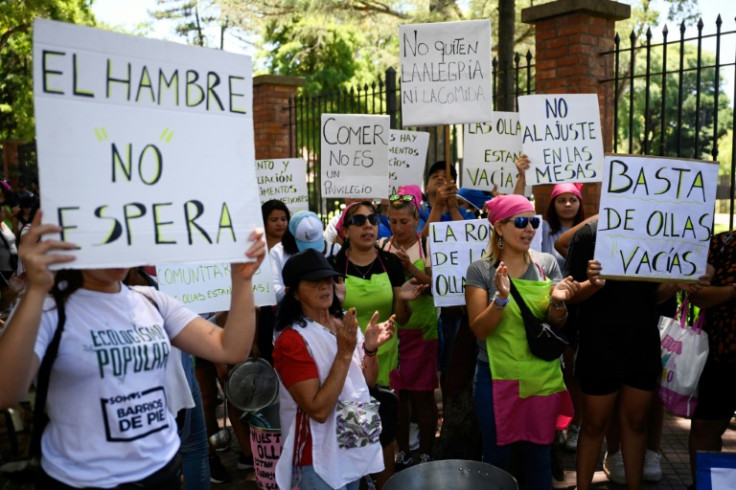
Argentine President Javier Milei faces the first major challenge to his budget-slashing policies Wednesday as workers are expected to down tools in their thousands and take to the streets in protest.
The South American country's biggest union, the CGT, with some seven million members, has vowed a massive mobilization against Milei's campaign of deregulation and economic reform, which many fear will leave them vulnerable to exploitation, and poorer.
They will be joined by other, smaller unions and civic groups, vowing to "not yield an inch of what has been achieved" in terms of labor and consumer protections, according to CGT leader Pablo Moyano.
Never before has a mass strike been called so soon into the term of a new Argentine government: just 45 days.
The government is not taking the challenge lying down.
It has set up an anonymous, toll-free line for people to report "threats and pressure" on workers to stay away from their jobs.
It has also said it will take a day of pay from each striking public servant and will hand unions the bill for Wednesday's police deployment.
Milei took office in December after a campaign vowing to slash public spending.
Ten days after he came to power, Milei announced a set of sweeping reforms that lessened some worker protections, abolished a price ceiling on rent and lifted price controls on certain consumer goods.
Poverty levels in Latin America's third-biggest economy are at 40 percent and the country is battling annual inflation exceeding 200 percent after decades of financial mismanagement.
Milei's reforms are also being challenged in court, with more than 60 lawsuits under way by labor unions, business chambers and NGOs.
One chapter of Milei's so-called "mega decree" on spending reforms -- dealing with labor matters -- has already been frozen by a court pending a review by Congress.
Among other things, it sought to increase the job probation period from three to eight months, reduce compensation in case of dismissal and cut pregnancy leave.
For the rest of the decree, the government is putting pressure on lawmakers for a quick adoption, but is facing some resistance from the center-right opposition.
The economy, too, has resisted Milei's attempts to boost export competitiveness by devaluing the peso by more than 50 percent last month.
"What was gained in competitiveness is lost with inflation," economist Martin Epstein told AFP.
And with interest rates far below inflation, "any investment in pesos is a loss," he added, meaning people are buying US dollars -- sending the exchange rate of the peso soaring on the informal market to 1,235 to the dollar.
The official rate is 868 pesos.
The markets expect another devaluation in the coming months, and analysts say more unrest is likely to follow especially with higher cost of supplies for school, resuming soon, on top of fuel, food and transport price increases.
In yet another blow to his reforms, Milei's government has had to walk back a plan to cut public funding of the film industry after a backlash from the sector drew backing of international stars including Spanish director Pedro Almodovar.







